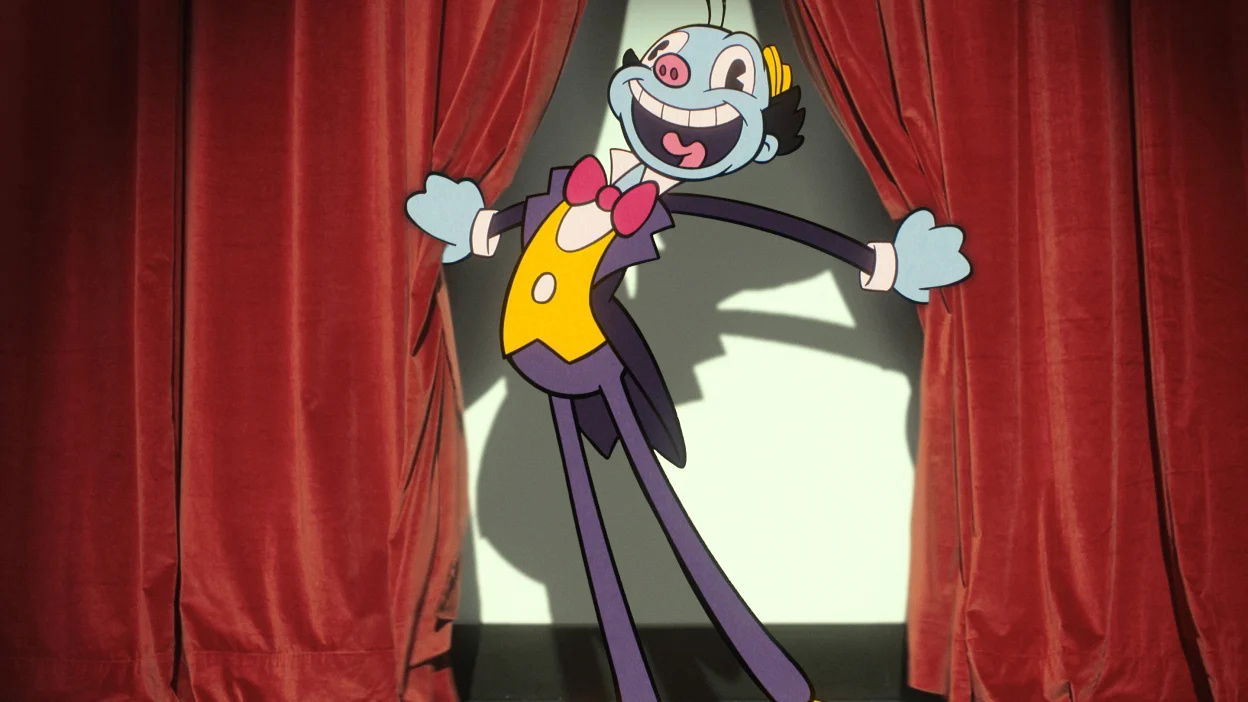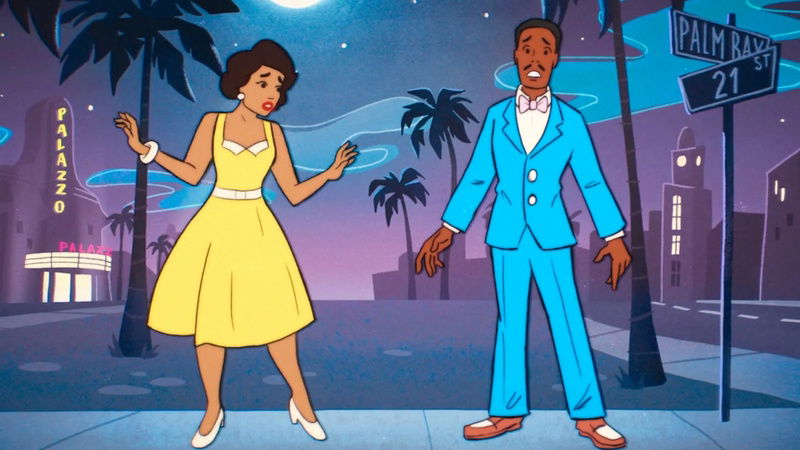When you’re watching a TV show that continually lets you down, there are points when you want to keep “giving it a chance,” and then moments when you wonder if “your faith will ever be rewarded.” After an incredibly lackluster season premiere, Doctor Who had a lot to make up for, and I know I’m not the only one who felt that way. The problem, as my Doctor Who Lux Review will show, is that despite an incredibly unique premise, even for this show, Russell T. Davies instead decided to “poke fun at fans” while getting as “meta as possible,” and the episode floundered because of it.
Immediately following the events of the last episode, The Doctor tries to find a way to get his new companion, Belinda, back home. So, he figures that they need to get some “more data” and sends them back to Miami in 1952. I’ll get to that “randomness” later, but the key thing to note is that at that very period in time, there was an “incident” at a movie theater where a cartoon character, Mr. Ring-A-Ding-Ding, comes to life and does something to the 15 people who are there. Naturally, The Doctor wants to investigate, and that was where we got the first of many surprises when this character turned out to be…
…one of the gods from the “Pantheon of Discord” that The Doctor has been fighting since the 60th anniversary special. To be honest, that was a letdown, because this was yet another god that The Doctor would beat within one episode instead of making them feel like a true threat. Things didn’t get much better when Lux, the god of light, was only a threat in certain ways, versus Maestro, who literally robbed the world of music, or Suketh, who KILLED THE WHOLE UNIVERSE!
Lux could trap people in film…but only those in the theater, and even with his “godly powers,” he was slow to move because of his size. Then, as we found out, he needed light to be more powerful and somehow wasn’t powerful enough to just go outside and get more. I’ll get to that “twist” later.
Another key issue was with Belinda once again. I noted in my previous review that she didn’t really have much of a personality at times, and it showed up once again here. Recall that at the end of the last episode, she demanded that our dear Doctor take her home. Yet the moment she found out that “1952 was right out the door,” she couldn’t wait to go see it. Sure, she “snapped back,” but only for a few seconds until she was confused to “Scooby-Doo this crap,” to borrow a phrase from another doctor. Or how she apparently “didn’t trust the Doctor” and then professed how sorry she was for NOT trusting him. It was a very tropey moment that the cinema WOULDN’T be proud of.
In fact, Russell T. Davies couldn’t help himself with the “cinema” of this episode by doing all sorts of meta commentary on the type of “case” they were on (the Scooby-Doo references) or showing the various kinds of animation to ‘give depth to characters,’ and, of course, the “fans.”
Now, on their own, these things wouldn’t have been bad. However, much like other episodes I’ve cited recently, Davies feels bent on ignoring “true emotional storytelling” just to move the plot along. For example, in the above reference image, the only way that The Doctor and Belinda could “regain their depth” was by adding sad things they were feeling. How does that work? Plus, they ignored it once they were three-dimensional again, and then Belinda gave a one-line reminder of it, and then they were back into the Tardis.
As for the “fans,” that was so meta it was confusing. They “were real,” and knew all about The Doctor’s adventures, but they WEREN’T real and thus would “die” at the end…but they didn’t…and if they weren’t real, how did they know about past adventures like “Blink?” It’s all very confusing. Not to mention, Davies was totally “gloating” with ALL OF THEM liking Blink over everything else. It felt like he was poking fun at fans at times, including in the end credits sequence when they only gave it a “7/10,” mocking those who “don’t like his episodes anymore,” which has been a recurring complaint recently.
The climax was just as confusing, because Lux wanted to go outside, and was fine with stealing Time Lord energy (which Davies noted The Doctor was “conveniently storing” since the 60th anniversary…yeah…) to gain a new form, but the moment that the sun came out, he became “everything and nothing.” Say what now? That meant he was doomed from the start, and that makes him the worst god ever! Yes, Maestro was beaten by sound, but it was a SPECIFIC set of notes that had to be played, and even The Doctor got the notes wrong. The Toymaker had to be beaten in a game, and that wasn’t a certainty. Suketh had to be dragged throughout space and time to undo his effects. Yet Lux was…beaten by the sun. Really?
Another flaw in logic that I’ve seen many point out is that if May 24th is “off limits,” why not go back to May 23rd in a part of England, or the world for that matter, that The Doctor KNOWS he’s not in at the moment (thus avoiding a paradox) and then seeing what happened? After all, he kept repeating the date they “can’t go to,” so why didn’t he go to the day before then? That’s called simple logic, and The Doctor is all about that to solve problems…except for right now, apparently.
One last point. Yet again, Davies didn’t desire to play into the “real-world issues” of the period that The Doctor was in. They mentioned racism in 1950s Miami a few times, but it didn’t amount to anything. It was more like a “Yeah, we know this was a real thing, but it doesn’t matter right now.” Then, when they DID try to “make a big deal out of it,” it was a fake scene!
Oh, and Mrs. Flood showing up again? Really? Are we getting a “Susan Twist” thing all over again? Not worth it, given how last time played out.
As I wrap up my Doctor Who Lux Review, I want to restate that I don’t hate this show, and I know that it can be special when it wants to be. Yet, here we are two episodes in, and I’m not intrigued with what will happen in the upcoming episodes, and that makes me really sad.
Doctor Who Lux Review
Summary
Doctor Who “Lux” tried to get very creative with its villain and setting, and it ALMOST worked, but the show’s writing for both Belinda, the villain, and the “fans” helped make this feel like Russell T. Davies was “tooting his own horn” versus trying to make a compelling episode.
Pros
- Mr. Ring-A-Ding-Ding was unique…
- Clever story setup…
Cons
- …but went out like a bad joke.
- …that fell apart because of the “fans” and meta-style storytelling.
- Belinda’s “whiplash” personality.
- Mrs. Flood.
- Misuse Of Serious Story Themes Again
-
Doctor Who Lux Review






